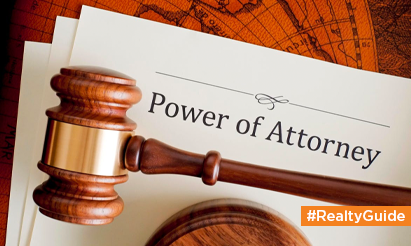Everything you need to know about power of attorney!
Caring for someone can entail a lot of things. For instance it can mean taking care of their appointments, completing household chores or helping them handle their daily activities.
It can also entail managing their finances as well. Multiple studies show that the ability to perform simple calculations, as well as to handle financial matters, can get more difficult as people age. This is where a Power of Attorney (POA) comes into play. In this article we’ll discuss it’s meaning, It’s types, why it’s needed & how it works.
What’s Power of Attorney?
POA is simply a legal document that authorizes another person to handle one’s personal business and make decisions on their behalf. A person can create the POA for use when they are incapacitated or unable to handle their own affairs. The type of POA they choose to create depends on the situation and the type of decisions permitted under these types of legal documents.
When is POA needed?
A POA comes into play when a person is incapacitated by an illness or some disability. The person authorized may act on behalf of the principal in case the person is not available to make legal transactions. The POA lapses when the creator dies, revokes it, or when it is invalidated by a court of law. A POA also ends when the creator divorces a spouse charged with a POA or when an agent is not able to continue carrying out outlined duties.
How does POA work?
A person can download or buy POA templates & should ensure they belong to the state of residence. Person must not assume that the documents acquired are of the correct kind. Verification of the POA is necessary before the legal process can begin. The best way for a principal to start the process is by getting legal help as the legal jargon involved can be an issue.
Further, It is mandatory to get the person’s signature notarized. In some cases, the witness’s signature also needs to be notarized. As there is no standardized POA form, procedures & laws vary based on the principal’s residence. While the durable POA is generally accepted, there are certain powers that cannot be delegated, such as making a will, contracting a marriage, or casting a vote.
Types of Power of Attorney
These are the four major types of POA
I) General POA
In this situation, as the name suggests, the agent is allowed to perform almost any act of the principal. It includes opening financial accounts & managing personal finances. A general POA arrangement gets terminated when the principal revokes the POA or passes away.
II) Durable POA
In this format the agent is designated to act on the principal’s behalf & it includes a durable clause that maintains the POA after the principal becomes incapacitated.
III) Special or Limited POA
In this setting, the agent has specific powers limited to a certain domain or area. An instance, a POA which grants the agent authority to attend meetings or sell a home or any other piece of property.
IV) Springing Durable POA
This POA is available & becomes effective when any specified event occurs such as when the person making it becomes incapacitated.
Lastly!
A POA is an authority imposed & responsibility given to an agent by the principal allowing the said agent to take decisions on their behalf. The agent can receive either specific or general authority to act on the principal’s behalf on decisions relating to property, finances, health & so on. We hope that this article cleared all your doubts regarding POA & how it works!
Disclaimer: The views expressed above are for informational purposes only based on industry reports and related news stories. PropertyPistol does not guarantee the accuracy, completeness, or reliability of the information and shall not be held responsible for any action taken based on the published information.




